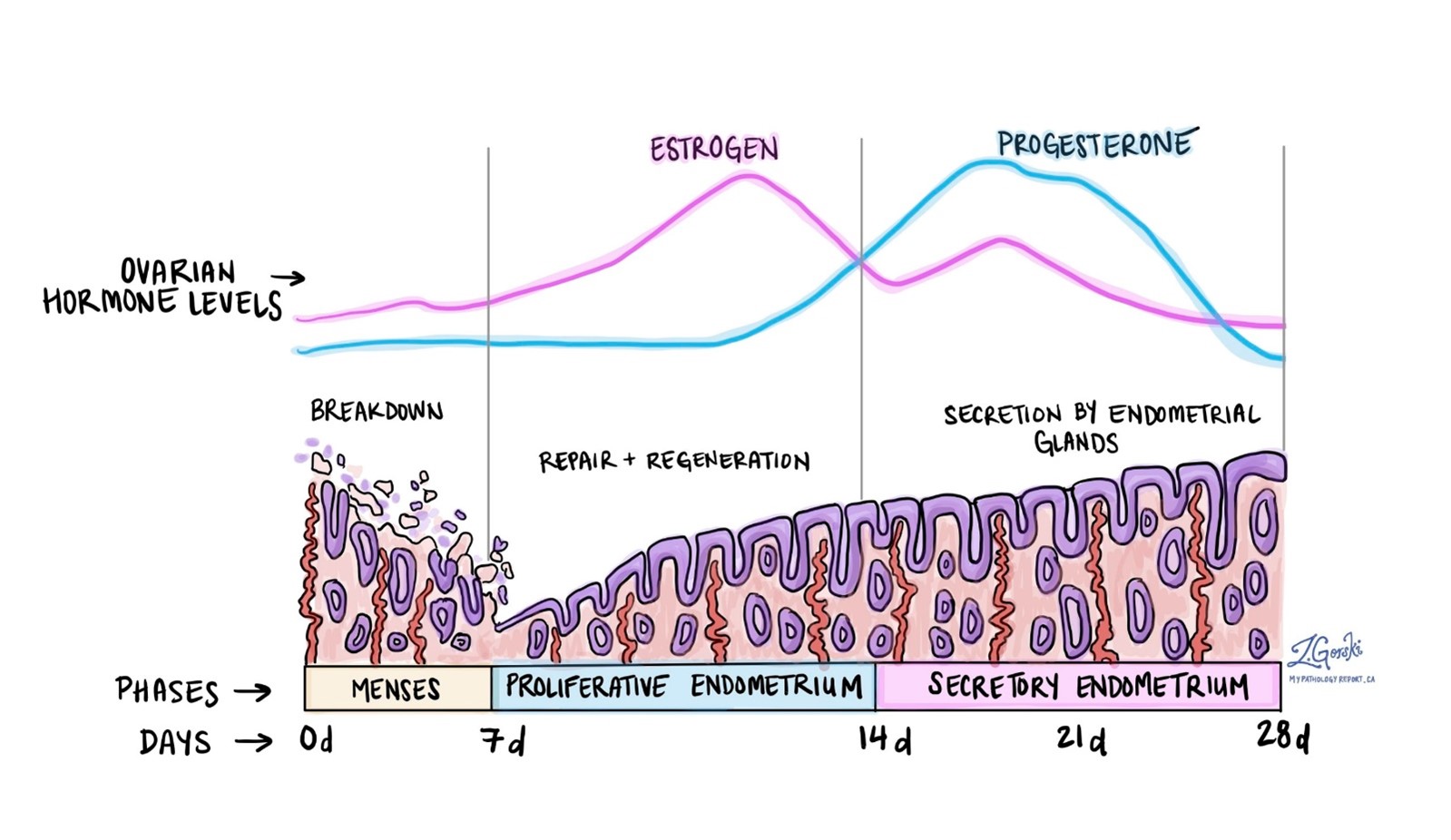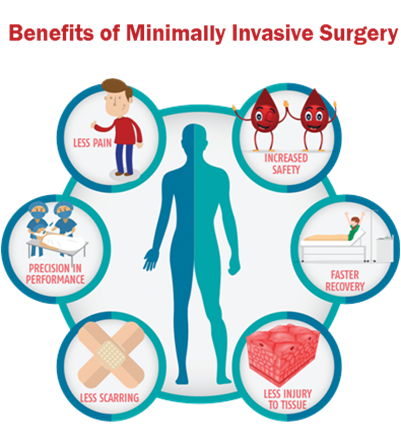When describing the menstrual cycle to a group of young women, the nurse explains that estrogen levels are highest during which phase of the endometrial cycle?
Menstrual
Ischemic
Secretory
Proliferative
The Correct Answer is D
Choice A: Menstrual is not the correct answer because it is the phase when estrogen levels are lowest. The menstrual phase occurs when the endometrium (the lining of the uterus) is shed along with blood and mucus through the vagina.
Choice B: Ischemic is not the correct answer because it is the phase when estrogen levels are decreasing. The ischemic phase occurs when the blood supply to the endometrium is reduced due to vasoconstriction (narrowing of blood vessels). This phase prepares the endometrium for shedding if fertilization does not occur.
Choice C: Secretory is not the correct answer because it is the phase when progesterone levels are highest. The secretory phase occurs when the endometrium becomes thick and spongy due to increased secretion of mucus and glycogen (a form of sugar). This phase provides a suitable environment for implantation if fertilization occurs.
Choice D: Proliferative is the correct answer because it is the phase when estrogen levels are highest. The proliferative phase occurs when the endometrium regenerates and grows due to increased stimulation by estrogen. This phase prepares the endometrium for implantation if fertilization occurs.

Nursing Test Bank
Naxlex Comprehensive Predictor Exams
Related Questions
Correct Answer is A
Explanation
Choice A: Refusing to look at the dressing or surgical incision is the correct answer because it is a behavior that may indicate difficulty adjusting to the loss of her breast. Refusing to look at the dressing or surgical incision may reflect denial, avoidance, or fear of facing the reality of the surgery and its consequences. It may also indicate low self-esteem, body image disturbance, or depression. The nurse should assess the client's emotional state and provide support and education.
Choice B: Asking questions about the information on her postoperative care pamphlet is not the correct answer because it is a behavior that may indicate a positive adjustment to the loss of her breast. Asking questions about the information on her postoperative care pamphlet may reflect acceptance, curiosity, or motivation to learn about her condition and treatment. It may also indicate high self-efficacy, coping skills, or optimism. The nurse should encourage the client's involvement and provide clear and accurate information.
Choice C: Performing arm exercises once or twice a day is not the correct answer because it is a behavior that may indicate a positive adjustment to the loss of her breast. Performing arm exercises once or twice a day may reflect compliance, responsibility, or self-care. It may also indicate physical recovery, functional ability, or quality of life. The nurse should reinforce the client's efforts and provide feedback and guidance.
Choice D: Asking for pain medication every 3 hours is not the correct answer because it is a behavior that may indicate a normal response to the loss of her breast. Asking for pain medication every 3 hours may reflect pain management, comfort, or relief. It may also indicate trust, communication, or satisfaction with care. The nurse should assess the client's pain level and provide adequate and timely pain relief.
Correct Answer is C
Explanation
Choice A: The social worker is not the correct answer because they are not legally responsible for obtaining informed consent for an invasive procedure. The social worker is a professional who provides psychosocial support and advocacy for clients and families, such as counseling, referrals, or discharge planning.
Choice B: The nurse is not the correct answer because they are not legally responsible for obtaining informed consent for an invasive procedure. The nurse is a professional who provides direct care and education for clients and families, such as assessment, medication administration, or teaching. However, the nurse can assist the physician in obtaining informed consent by witnessing the client's signature, verifying the client's understanding, or documenting the process.
Choice C: The physician is the correct answer because they are legally responsible for obtaining informed consent for an invasive procedure. The physician is a professional who diagnoses and treats clients and families, such as performing surgery, prescribing medication, or ordering tests. The physician must explain the purpose, benefits, risks, alternatives, and consequences of the procedure to the client and obtain their voluntary agreement before proceeding.
Choice D: The unit secretary is not the correct answer because they are not legally responsible for obtaining informed consent for an invasive procedure. The unit secretary is a staff member who performs clerical and administrative tasks for the unit, such as answering phones, filing records, or scheduling appointments.

Whether you are a student looking to ace your exams or a practicing nurse seeking to enhance your expertise , our nursing education contents will empower you with the confidence and competence to make a difference in the lives of patients and become a respected leader in the healthcare field.
Visit Naxlex, invest in your future and unlock endless possibilities with our unparalleled nursing education contents today
Report Wrong Answer on the Current Question
Do you disagree with the answer? If yes, what is your expected answer? Explain.
Kindly be descriptive with the issue you are facing.
